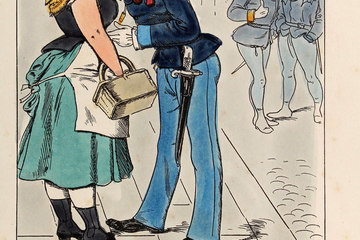From ‘peoples’ to ‘nations’
The development of the concept of the nation is regarded as having been a formative phenomenon in modern European history. This is particularly true with respect to the Habsburg Monarchy, which had an enormous variety of languages and ethnicities, all interwoven on many different levels. While this was culturally extremely stimulating, it was a major complicating factor in the development of new nations.
As they entered the age of nationalism the various peoples of Central Europe displayed enormous structural differences, not only in quantitative terms – they ranged from numerically large ethnic groups down to much smaller language groups – but also with respect to social structures, political rights, and cultural and economic development.








